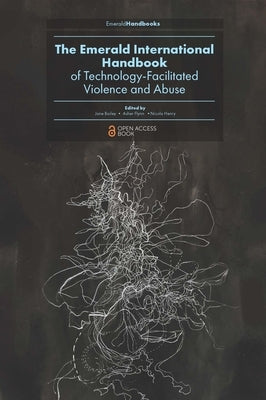Description
The ebook edition of this title is Open Access and freely available to read online
Digital technologies have led to many important social and cultural changes worldwide, but they are also implicated in the facilitation of violence and abuse. While cybercriminality is often described as one of the greatest threats to nation states and global security, the wide range of interpersonal crimes comprising technology-facilitated violence and abuse (TFVA) - including, but not limited to, image-based sexual abuse, hate speech, online sexual harassment and cyberstalking - has received little attention.
This handbook features theoretical, empirical, policy and legal analysis of TFVA from over 40 multidisciplinary scholars, practitioners, advocates, survivors and technologists from 17 countries. Addressing a spectrum of abuse perpetrated online, offline and through new technologies, the book sets TFVA in the context of intersecting underlying systemic drivers - including misogyny, racism, classism, colonialism, ableism, ageism, transphobia and homophobia - and discusses ways forward in effectively responding to TFVA. Adopting a holistic approach, it explores a host of issues relating to TFVA, including the nature and experience of harmful and criminal conduct; organisational responses; regulatory, legal and ethical concerns; corporate and social responsibility; justice for victims; bystander intervention; and cultural and social attitudes.
The handbook's international, interdisciplinary and intersectoral nature affords opportunities for learning from common experiences, but it also emphasises the equality-affirming importance of avoiding one-size-fits-all analyses that fail to reflect rich and diverse experiences from around the world.
Author: Jane Bailey
Publisher: Emerald Publishing Limited
Published: 06/04/2021
Pages: 824
Binding Type: Hardcover
Weight: 2.80lbs
Size: 9.10h x 6.20w x 1.90d
ISBN13: 9781839828492
ISBN10: 1839828498
BISAC Categories:
- Social Science | Sociology | General
- Law | Criminal Law | General
Digital technologies have led to many important social and cultural changes worldwide, but they are also implicated in the facilitation of violence and abuse. While cybercriminality is often described as one of the greatest threats to nation states and global security, the wide range of interpersonal crimes comprising technology-facilitated violence and abuse (TFVA) - including, but not limited to, image-based sexual abuse, hate speech, online sexual harassment and cyberstalking - has received little attention.
This handbook features theoretical, empirical, policy and legal analysis of TFVA from over 40 multidisciplinary scholars, practitioners, advocates, survivors and technologists from 17 countries. Addressing a spectrum of abuse perpetrated online, offline and through new technologies, the book sets TFVA in the context of intersecting underlying systemic drivers - including misogyny, racism, classism, colonialism, ableism, ageism, transphobia and homophobia - and discusses ways forward in effectively responding to TFVA. Adopting a holistic approach, it explores a host of issues relating to TFVA, including the nature and experience of harmful and criminal conduct; organisational responses; regulatory, legal and ethical concerns; corporate and social responsibility; justice for victims; bystander intervention; and cultural and social attitudes.
The handbook's international, interdisciplinary and intersectoral nature affords opportunities for learning from common experiences, but it also emphasises the equality-affirming importance of avoiding one-size-fits-all analyses that fail to reflect rich and diverse experiences from around the world.
Author: Jane Bailey
Publisher: Emerald Publishing Limited
Published: 06/04/2021
Pages: 824
Binding Type: Hardcover
Weight: 2.80lbs
Size: 9.10h x 6.20w x 1.90d
ISBN13: 9781839828492
ISBN10: 1839828498
BISAC Categories:
- Social Science | Sociology | General
- Law | Criminal Law | General
About the Author
Jane Bailey is Full Professor in the Faculty of Law at the University of Ottawa, Canada.
Asher Flynn is Associate Professor of Criminology at Monash University, Australia.
Nicola Henry is Associate Professor and Principal Research Fellow in the Social and Global Studies Centre at RMIT University in Melbourne, Australia.

